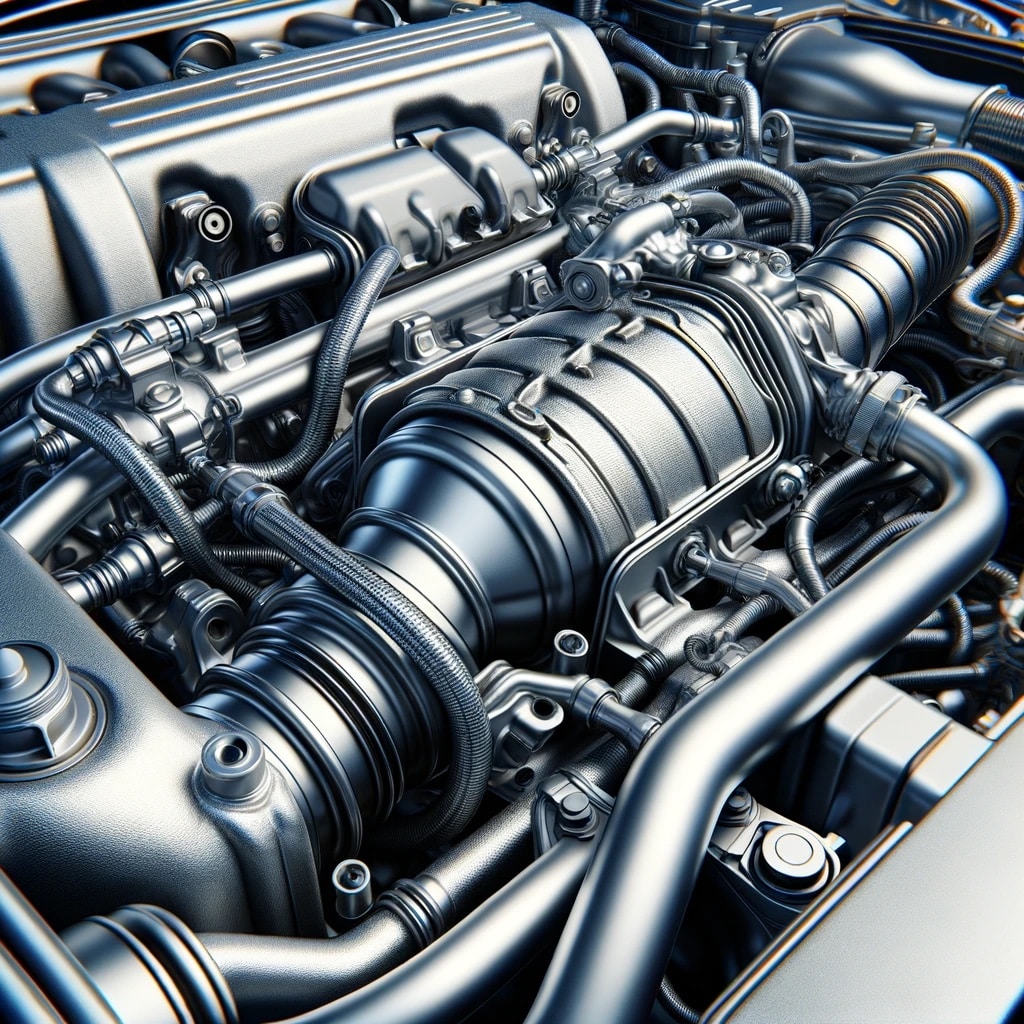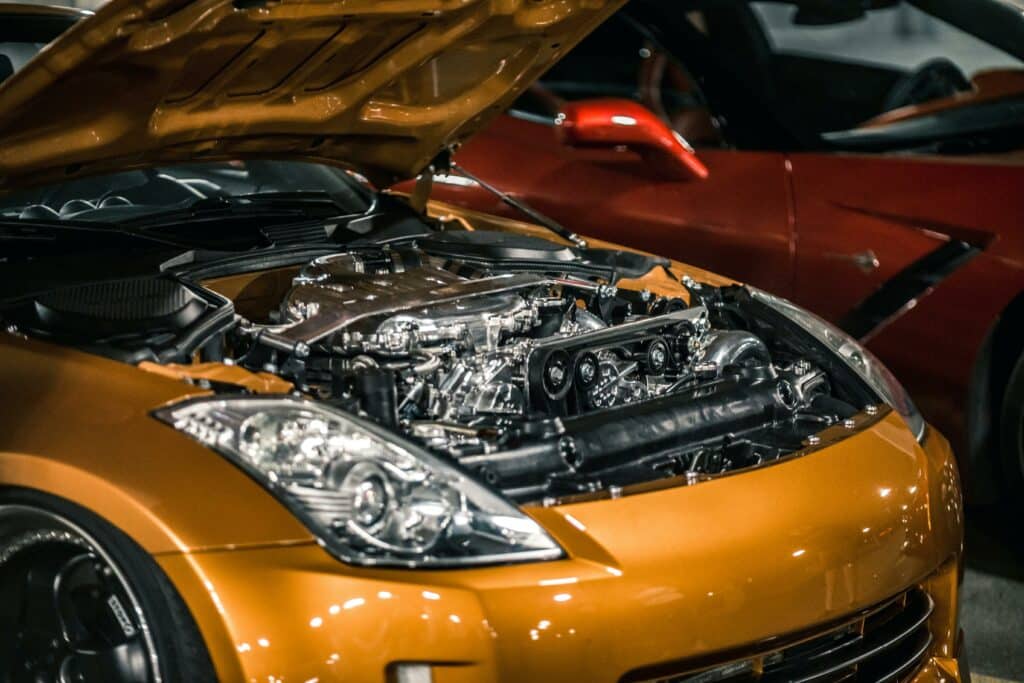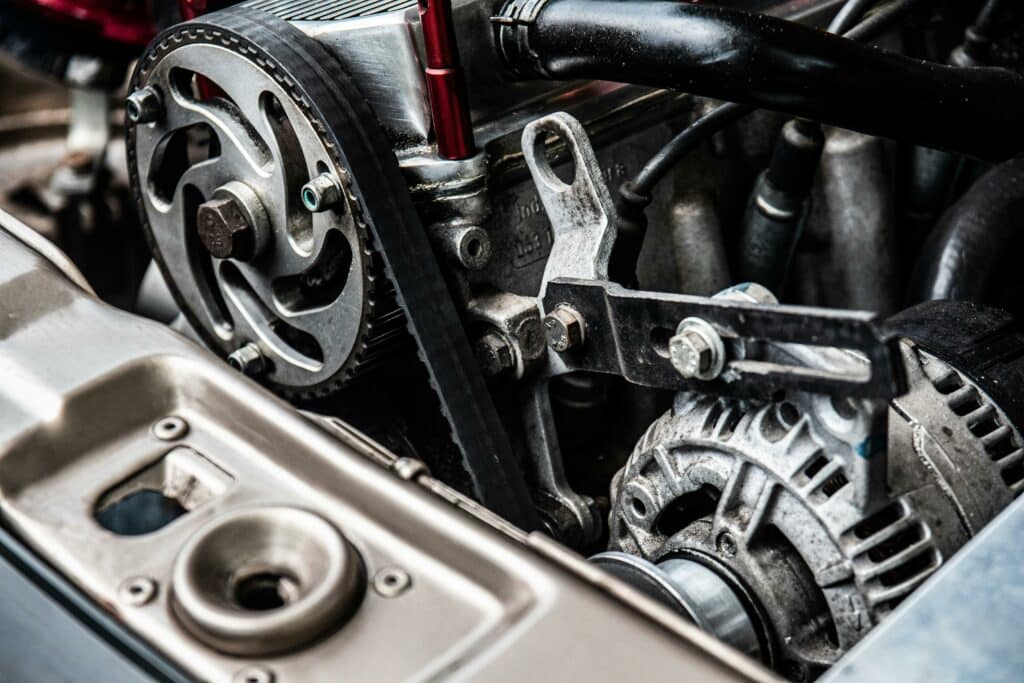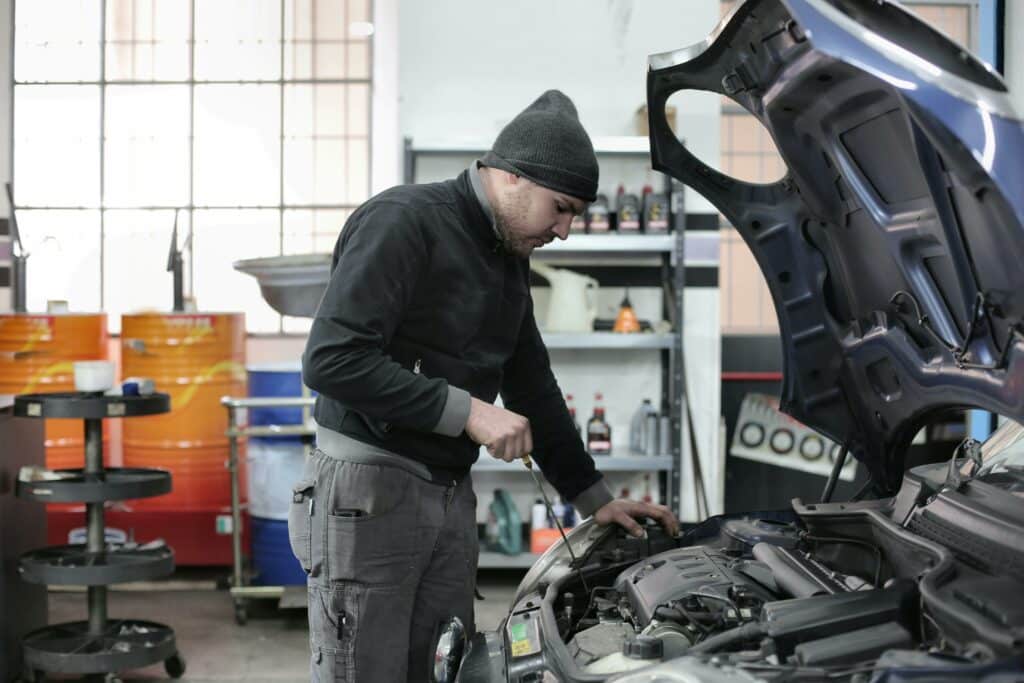Did you know that your catalytic converter contains materials that are more expensive than gold?
Yes, that’s correct!
Catalytic converters contain precious metals like rhodium, palladium, and platinum, which are used as catalysts to help reduce harmful vehicle emissions. These metals have become increasingly valuable due to their scarcity and high industry demand. Thieves target catalytic converters for their precious metals, making them a valuable commodity to recycle and sell.
If you’re curious about the potential value of your catalytic converter, let’s help you discover its worth.
Catalytic Converters & Their Role
Introduced in the 1970s and made mandatory for all new US vehicles by 1975, these devices contain various precious metals. These metals help transform harmful car emissions into gases that are less harmful to the environment.
Consider your car’s catalytic converter as a protector of the environment, working quietly beneath your vehicle to combat air pollution. The average lifespan of a converter ranges from 10 to 15 years, during which it may experience performance issues, such as reduced power and fuel economy.
When performance issues arise, remember the benefits of recycling. Properly disposing of your old converter not only potentially provides financial gain from the valuable metals it contains but also helps promote a healthier environment. Handled correctly, these converters have a largely positive environmental impact, reducing greenhouse gas emissions and conserving scarce resources.
Recognizing the worth and purpose of your catalytic converter is an informative step toward financial and environmental responsibility.
Factors Influencing Converter Value
Several factors influence the value of a catalytic converter. The metal content, including platinum, palladium, and rhodium, is the primary determinant of its worth.
The age of the converter, its condition, and the type of vehicle it was sourced from are also significant factors.
Market conditions at any given time also affect the converter’s value.
Metal Content: Key Factor

The metal content of a catalytic converter, which includes precious metals such as platinum, palladium, and rhodium, significantly determines its worth. Apart from being a car part, it also serves as a rich source for recycling.
Typically, a catalytic converter contains 3-7 grams of platinum, 2-7 grams of palladium, and 1-2 grams of rhodium. These valuable metals, sought after for their scarcity and adaptability, contribute greatly to the total worth of your converter. The existing market rates of these metals directly impact your converter’s worth, making it susceptible to theft.
Impact of Vehicle’s Age
When assessing the worth of your catalytic converter, it’s important to comprehend that the age of your vehicle can have a significant influence due to the possible buildup of precious metals over time. This impact from the vehicle’s age can substantially affect the converter’s worth.
Cars of older years often have converters filled with metals such as platinum, palladium, and rhodium, making them more sought-after for recycling. The greater the metal buildup, the more value the converter holds. As an integral part of your beloved vehicle, these converters are a hidden asset that grows in value as time passes.
Condition: A Value Determinant
Turning our attention away from the vehicle’s age, let’s discuss another important factor determining your catalytic converter’s worth – its condition.
This aspect significantly influences the value estimation of your converter. Similar to how market flows can alter the price, the status of your converter significantly matters too.
A well-cared-for converter, with less usage and minor damage, can command a higher price in the salvage market. If the content of precious metals is preserved due to proper maintenance, this can boost its value even more.
Conversely, any damage, blockages, or malfunctions can substantially lower its value. So, while you’re working on your vehicle, remember that maintaining your vehicle’s hidden asset in top condition isn’t only beneficial for performance and a smart financial decision.
Similar read: Best Aluminum Floor Jacks
Top Valued Catalytic Converters

When evaluating the most valuable catalytic converters, you’ll observe that they’re often found in luxury vehicles such as Ferraris and Lamborghinis. This high cost is attributed to these converters’ significant quantity of precious metals.
Similarly, the converters in hybrid vehicles are also pricey because they operate at lower temperatures and have a higher quantity of precious metals. However, the value of these converters isn’t only determined by the amount of precious metals they contain. Still, it is also influenced by factors such as the current market price of the metals, the vehicle’s make, and the converter’s condition.
Identifying High-Value Converters
Uncovering the worth of certain catalytic converters can be an unexpected discovery. Luxury vehicles, such as Ferraris, Lamborghinis, and specific heavy-duty trucks, often house some of the most valuable converters. These can contain up to 7 grams each of platinum and palladium and 2 grams of rhodium.
In the current market, these could go for $724,77!
That’s $201,18 for platinum (currently at $28,74 per gram), $212,73 for palladium (currently at $30,39 per gram), and a whopping $310,86 for rhodium (currently $155.43 per gram)
Recognizing these high-value converters isn’t as overwhelming as you might think.
- Keep an eye out for unique markings or stamps, typically on the metal shell, as these can provide clues to the converter’s potential worth.
- Stay updated on the market demand for specific models, as this can significantly impact the value.
- Be aware that converters from luxury or high-performance vehicles typically have higher worth due to their precious metal content.
- Remember that larger converters usually contain a more generous amount of precious metals, enhancing their value.
Factors Affecting Converter Worth
When assessing the value of catalytic converters, several factors come into play:
- The make of the vehicle
- Engine capacity
- Driving pattern
- The precious metal content of the converter
The ever-changing market prices of palladium, rhodium, and platinum greatly impact their value. High-end vehicles, large trucks, or hybrid cars tend to have more expensive converters due to their metal content and specific operating requirements.
Environmental impact and regulations also need to be taken into account. Strict emission reduction laws can push up the value of these car parts.
Your driving habits can also affect the value – regular short journeys can lead to pollutants accumulating, which decreases the lifespan and value of your converter. Being aware of these factors ensures you know the valuable asset in your vehicle.
Selling Your Catalytic Converter
Choosing to sell your old catalytic converter can be profitable, considering the valuable metals like platinum, palladium, and rhodium it contains. However, understanding market trends and pricing is necessary to secure the maximum profit.
The worth of your converter changes greatly based on the demand and prices of these metals. Monitoring market trends can help you determine the optimal time to sell, possibly resulting in higher earnings.
Selecting the appropriate buyer is equally important. It isn’t solely about accepting the highest bid but also considering the buyer’s reputation. A well-regarded buyer will offer a fair price that aligns with the current market value. Remember, negotiation isn’t off the table. Don’t shy away from bargaining for a more advantageous deal.
Here’s a simple checklist to remember:
- Monitor market trends for platinum, palladium, and rhodium
- Investigate buyer reputation before selling your converter
- Don’t be scared to negotiate the price
- Keep in mind recycling your converter is environmentally friendly too
Selling your catalytic converter isn’t only for financial gain; it’s also about contributing to a community that values sustainability and environmental preservation.
Catalytic Converter Replacement Costs

Though you may be tempted by the potential profit from selling your used catalytic converter, it’s crucial to weigh the possible expense of its replacement. This can differ greatly based on your vehicle’s make, model, year, and engine.
For example, if you need to replace the catalytic converter on a Honda CR-V from recent years, you could look at a cost ranging from $2,100 to $2,400. On the other hand, the replacement cost for a Chevrolet Equinox or Ford F-150 falls between $500 to $1,750 and $610 to $1,500, respectively.
Market trends and pricing largely dictate these costs. Attributes like the worth of precious metals usually found in your converter can increase or decrease the price. Also, the specific type of converter your vehicle requires can affect the final expense.
If you’re looking to reduce these costs, there are several strategies you can employ. One approach is to compare prices from different providers, as they can fluctuate. Another method is to consider using aftermarket parts instead of OEM (Original Equipment Manufacturer) parts, as they’re often less expensive. Remember, being educated about these costs can help you make a choice advantageous for your wallet and your vehicle.
Similar Read: Floor Jack For Lifted Truck
Proper Disposal of Old Converters
Understanding the expenses involved in changing your catalytic converter is important, but one must also acknowledge the environmental importance of disposing of old converters correctly. This process involves more than eliminating an unnecessary item; it also means contributing positively to the environment and promoting sustainability.
Consider the following advantages of recycling:
- It prevents environmental pollution.
- It decreases the demand for mining fresh metals.
- It contributes to the reduction of greenhouse gas emissions.
- It allows for extracting precious metals like platinum, palladium, and rhodium.
These advantages highlight the greater environmental effect of your actions. Your old converter isn’t rubbish; it’s a rich source of valuable resources. By opting to recycle, you’re not just getting rid of something; you’re consciously choosing to be a part of the solution.
Frequently Asked Questions

How much scrap is a catalytic converter worth?
You could be sitting on an unexpected goldmine! The scrap worth of your catalytic converter can differ greatly, but it contains precious metals like rhodium, platinum, and palladium, which could significantly fatten your wallet. Just look at the calculation I presented above, and look into factors like age, condition of your converter, and the model.
What vehicle has the most valuable catalytic converter?
You might not expect this, but the Toyota Prius has the most valuable catalytic converter. Because of its high content of precious metals, it often becomes a target for theft due to the high value of its converter.
What is the highest-paying scrap catalytic converter?
You might be curious about the scrap catalytic converter that fetches the highest price. Generally, ones rich in the precious metal rhodium are the most valuable. Sadly, this reality also contributes to increased converter theft, influencing the global market.
What parts of a catalytic converter are worth money?
The catalytic converter contains two ceramic blocks with microcellular channels arranged like a honeycomb. These blocks are coated with precious metals like platinum, palladium, and rhodium.
Conclusion
Wrapping up, don’t undervalue the hidden treasure of your vehicle – the catalytic converter. This component, containing metals such as rhodium, palladium, and platinum, has serious value in the scrap market.
For example, a single gram of rhodium can fetch up to $180. Therefore, it’s worth looking into and tracking your converter’s value. You might find it profitable to cash in on this part. Remember, disposing of it correctly is important.
Your old converter is more than scrap metal – it’s a goldmine!
